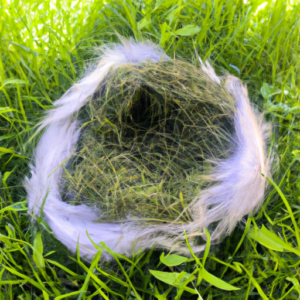
In the wonderful world of backyard chicken keeping, one question that often arises is how frequently should you collect eggs from the nesting boxes? While it may seem like a simple task, the timing of egg collection plays a vital role in maintaining the freshness and overall quality of those delightful breakfast staples. In this article, we will explore the importance of regular egg collection and reveal the ideal frequency to ensure healthy and delicious eggs for you and your flock. So, prepare to discover the perfect balance between keeping your hens happy and maintaining optimal egg freshness!

Factors to Consider
Number of Hens
When considering how often to collect eggs from your nesting boxes, the number of hens in your flock is an important factor to consider. If you have a small flock with only a handful of hens, collecting eggs daily may be sufficient. However, if you have a larger flock with several hens, you may need to collect eggs more frequently to prevent overcrowding and reduce the risk of eggs cracking or breaking.
Egg Production
The rate at which your hens are laying eggs is another important factor to consider. If your hens are laying eggs daily, it is advisable to collect them daily as well. This helps ensure that eggs are not left in the nesting boxes for too long, reducing the chances of spoilage or contamination. However, if your hens have a lower egg production rate, you may choose to collect eggs every other day or even multiple times per day to prevent eggs from piling up.
Environmental Conditions
The environmental conditions in which your hens are kept can also influence how often you should collect eggs from the nesting boxes. Extreme temperatures can accelerate the breakdown of eggs, especially in hot weather, making more frequent collection necessary to maintain egg quality. Additionally, high humidity levels can increase the risk of bacterial growth and egg spoilage, making it important to collect eggs regularly to prevent contamination. Lastly, the location of the nest boxes can impact how often you should collect eggs. If the boxes are placed in an area prone to direct sunlight or other adverse conditions, more frequent collection may be required.
Predator Risk
The level of predator risk in your area is another factor to consider when deciding how often to collect eggs from the nests. If you live in an area with a high predator risk, such as foxes or raccoons, it is important to collect eggs daily to minimize the chances of predation. Leaving eggs in the nesting boxes for too long can attract predators and increase the risk of losing your eggs. On the other hand, if predator risk is low in your area, you may have more flexibility in how often you collect eggs.
Hygiene and Egg Quality
Maintaining good hygiene and ensuring high-quality eggs is essential for any poultry keeper. Regularly collecting eggs helps prevent egg breakage, as eggs left in the nesting boxes for too long can become damaged. By collecting eggs promptly, you can minimize the risk of cracked or broken shells, which can lead to contamination. Additionally, frequent collection reduces the chances of hens laying eggs on top of existing ones or potentially pecking at them, ensuring higher-quality eggs.
Excessive Accumulation of Eggs
Allowing eggs to excessively accumulate in the nesting boxes can have negative effects on both egg quality and the health of your flock. When eggs are left for too long, they can become dirty, increasing the risk of contamination and reducing their overall quality. Additionally, if eggs pile up in the nesting boxes, there is a higher chance of them accidentally getting knocked over and breaking, leading to egg loss. It is crucial to establish a regular collection schedule to prevent excessive egg accumulation.

Maintaining a Regular Collection Schedule
Establishing and adhering to a regular collection schedule is crucial for several reasons. Firstly, it helps avoid egg spoilage. Eggs left sitting in the nesting boxes for extended periods can spoil, and consuming spoiled eggs can be harmful to both humans and animals. Secondly, regular collection ensures freshness. Eggs are at their best quality when collected promptly, and maintaining a consistent collection schedule helps ensure that you and your flock are enjoying the freshest eggs possible.
Storage and Handling
Proper storage and handling of eggs are essential to maintain their quality and safety. After collection, it is important to store eggs at the correct temperature to prolong their freshness and reduce the risk of bacterial growth. The ideal storage temperature for eggs is around 45-55 degrees Fahrenheit (7-13 degrees Celsius). Additionally, regularly cleaning and disinfecting the nesting boxes and ensuring proper hygiene during egg handling further reduces the risk of contamination and helps maintain the overall quality of your eggs.

Conclusion
When considering how often to collect eggs from the nesting boxes, it is crucial to find a balance that factors in the number of hens, egg production rate, environmental conditions, predator risk, and the importance of hygiene and egg quality. Regular collection is necessary to prevent excessive egg accumulation, reduce the risk of spoilage and contamination, ensure freshness, and maintain the well-being of your flock. By monitoring egg production and adhering to a consistent collection schedule, you can enjoy a steady supply of high-quality eggs from your backyard flock.







